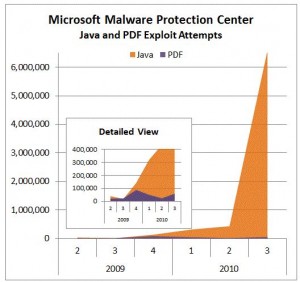Lethic spam package uses Stuxnet nuke nobbler cert ploy
A new variant of the Lethic botnet agent comes signed with a digital certificate from the same firm whose identity was abused by the infamous Stuxnet industrial control system worm.
Lethic is a spam-spewing botnet that ranks relatively low in terms of compromised machines but bears a disproportionately high responsibility for the world's dodgy pharmaceuticals and replica watch junk mail. Takedown efforts at command and control systems back in January only provided a temporary respite from the deluge.
Recent variants of the Lethic botnet come "signed" with digital certificates from Taiwanese manufacturer Realtek Semiconductor Corp, just like variants of Stuxnet that infected power plants in Iran, India and elsewhere back in summer. Stuxnet is capable of reprogramming SCADA-based industrial control systems.
Iranian authorities admitted the worm infected systems at its controversial Bushehr Nuclear Power Plant but denied this was the reason for subsequent delays in bringing the reactor online, blaming a mystery "minor leak" instead.
The digital Realtek certificate misused by the Stuxnet worm was verified by a certificate authority. Lethic's Realtek signature, by contrast, wasn't verified and is probably some sort of forgery.
Zscaler, the security firm that first noticed the abuse of the Realtek certificate, reckons this is evidence that malware authors are picking on the same organisation for convenience rather than because of any collusion between the unknown Stuxnet and Lethic gangs.
Mike Geide of Zscalar concludes a detailed and nicely worked analysis by concluding that even though the Realtek signature used in recent variants of Lethic was a counterfeit, the same tactic may have been applied by the same gang to other strains of malware. "While this is not a digital signature - it is still identifying info that may be able to tie certain malware samples to the same author / group / or binary builder,"
A new variant of the Lethic botnet agent comes signed with a digital certificate from the same firm whose identity was abused by the infamous Stuxnet industrial control system worm.
Lethic is a spam-spewing botnet that ranks relatively low in terms of compromised machines but bears a disproportionately high responsibility for the world's dodgy pharmaceuticals and replica watch junk mail. Takedown efforts at command and control systems back in January only provided a temporary respite from the deluge.
Recent variants of the Lethic botnet come "signed" with digital certificates from Taiwanese manufacturer Realtek Semiconductor Corp, just like variants of Stuxnet that infected power plants in Iran, India and elsewhere back in summer. Stuxnet is capable of reprogramming SCADA-based industrial control systems.
Iranian authorities admitted the worm infected systems at its controversial Bushehr Nuclear Power Plant but denied this was the reason for subsequent delays in bringing the reactor online, blaming a mystery "minor leak" instead.
The digital Realtek certificate misused by the Stuxnet worm was verified by a certificate authority. Lethic's Realtek signature, by contrast, wasn't verified and is probably some sort of forgery.
Zscaler, the security firm that first noticed the abuse of the Realtek certificate, reckons this is evidence that malware authors are picking on the same organisation for convenience rather than because of any collusion between the unknown Stuxnet and Lethic gangs.
Mike Geide of Zscalar concludes a detailed and nicely worked analysis by concluding that even though the Realtek signature used in recent variants of Lethic was a counterfeit, the same tactic may have been applied by the same gang to other strains of malware. "While this is not a digital signature - it is still identifying info that may be able to tie certain malware samples to the same author / group / or binary builder,"

